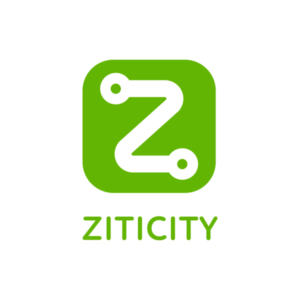In 2019 Vinted, an online used-clothing retailer, raised €128 million in a funding round that valued it at more than €1 billion, making it Lithuania’s first tech unicorn. Success stories like Vinted along with an abundance of tech talent, government-backed startup support initiatives and favourable conditions for founders have laid the foundation for a healthy and thriving startup culture with global ambitions.
Its capital, Vilnius, is certainly gaining momentum as a startup hub, having emerged as a significant player in Europe’s startup sphere. The future seems bright for Lithuania, especially for the following 10 fresh-faced startups, which were all founded in the past 3 years, have fast-growing teams, and show positive signals despite the pandemic.
 kevin. – Fintech startup kevin. was founded in 2017, and follows the trend of choosing a charming and human name for the company. kevin. aims to disrupt the payments sector with its secure and developer-friendly payments infrastructure, accessible via an API. It gives businesses the ability to accept payments directly from banks, cutting out the card networks and making payments process cheaper, faster, smoother and more convenient. The startup already has a team of 42 (and growing!), was named the best fintech in the Baltics in the Mastercard Lighthouse programme, is supervised by the Bank of Lithuania, and landed €1.8 million in funding so far.
kevin. – Fintech startup kevin. was founded in 2017, and follows the trend of choosing a charming and human name for the company. kevin. aims to disrupt the payments sector with its secure and developer-friendly payments infrastructure, accessible via an API. It gives businesses the ability to accept payments directly from banks, cutting out the card networks and making payments process cheaper, faster, smoother and more convenient. The startup already has a team of 42 (and growing!), was named the best fintech in the Baltics in the Mastercard Lighthouse programme, is supervised by the Bank of Lithuania, and landed €1.8 million in funding so far.
 Eneba Games – Driven by their passion for gaming, Vytis Uogintas and Žygimantas Mikšta founded Eneba in 2018 as a video game marketplace where gaming enthusiasts can easily and quickly buy and sell their digital game keys without the risk of fraud. Eneba says it has already attracted 26 million unique users thanks to its “one-click-to-buy” gaming experience, secured by proprietary machine learning and fingerprinting technology. Eneba is currently operating in the European and Latin American markets and with the latest investment of €6.55 million, new markets are on the horizon.
Eneba Games – Driven by their passion for gaming, Vytis Uogintas and Žygimantas Mikšta founded Eneba in 2018 as a video game marketplace where gaming enthusiasts can easily and quickly buy and sell their digital game keys without the risk of fraud. Eneba says it has already attracted 26 million unique users thanks to its “one-click-to-buy” gaming experience, secured by proprietary machine learning and fingerprinting technology. Eneba is currently operating in the European and Latin American markets and with the latest investment of €6.55 million, new markets are on the horizon.
 Ligence – The average waiting time for a patient to get an ultrasound examination is 5 weeks in the European Union. Ligence (founded in 2019) hopes to reduce this duration down to 2 weeks with its software to automate analysis of heart ultrasounds. At the heart of it are machine learning algorithms that are capable of automatically detecting a person’s heart functional and anatomical features from ultrasound images, ultimately reducing examination time dramatically and increasing overall accuracy. Last year, the startup won the EIT Health Innostars Awards.
Ligence – The average waiting time for a patient to get an ultrasound examination is 5 weeks in the European Union. Ligence (founded in 2019) hopes to reduce this duration down to 2 weeks with its software to automate analysis of heart ultrasounds. At the heart of it are machine learning algorithms that are capable of automatically detecting a person’s heart functional and anatomical features from ultrasound images, ultimately reducing examination time dramatically and increasing overall accuracy. Last year, the startup won the EIT Health Innostars Awards.
 Ooniq – Based in Vilnius, Ooniq is a peer-to-peer (P2P) insurance platform, based on the principles of the sharing economy, where its members form groups of peers in order to protect themselves against losses, make their own decisions on loss compensation using pooled funds and get back the unused ones. Launched in December 2019, this community-driven insurance product was the first start-up approved by the Central Bank of Lithuania to enter the Bank of Lithuania’s regulatory sandbox. Dubbed as the mutual insurer of the future, Ooniq is slowly transforming the global insurance industry.
Ooniq – Based in Vilnius, Ooniq is a peer-to-peer (P2P) insurance platform, based on the principles of the sharing economy, where its members form groups of peers in order to protect themselves against losses, make their own decisions on loss compensation using pooled funds and get back the unused ones. Launched in December 2019, this community-driven insurance product was the first start-up approved by the Central Bank of Lithuania to enter the Bank of Lithuania’s regulatory sandbox. Dubbed as the mutual insurer of the future, Ooniq is slowly transforming the global insurance industry.
 Go Ramp – Founded in 2017, Go Ramp saw its logistics services take off last year during the pandemic. The team offers a real-time logistics platform, which helps companies speed up communication on transportation shipments, warehouses plan their workflows, and managers can track KPIs. Having already landed €120K back in January 2020, the team also nabbed a further €450K in November 2020 to expand into Poland and Western Europe.
Go Ramp – Founded in 2017, Go Ramp saw its logistics services take off last year during the pandemic. The team offers a real-time logistics platform, which helps companies speed up communication on transportation shipments, warehouses plan their workflows, and managers can track KPIs. Having already landed €120K back in January 2020, the team also nabbed a further €450K in November 2020 to expand into Poland and Western Europe.
 Discontract – Founded in 2019, Discontract is imagining a future where organizations do not exist, all work is done remotely and tasks are carried out with the use of technology. It offers a real-time task exchange platform that connects local task givers and seekers with all tools integrated, overall facilitating multi-channel communication, peer-to-peer payments, loyalty programmes, and professional insurance. This startup landed €300K seed funding in April 2020, and looks set to help many professionals working at home in the current climate.
Discontract – Founded in 2019, Discontract is imagining a future where organizations do not exist, all work is done remotely and tasks are carried out with the use of technology. It offers a real-time task exchange platform that connects local task givers and seekers with all tools integrated, overall facilitating multi-channel communication, peer-to-peer payments, loyalty programmes, and professional insurance. This startup landed €300K seed funding in April 2020, and looks set to help many professionals working at home in the current climate.
 Profitus – Profitus was born in 2017 out of the idea to unite people and give them the opportunity to invest small amounts of money in real estate, to become partners in real estate projects or to implement their own real estate projects. Today it functions as an online real estate crowdfunding platform, where interested investors have the opportunity to finance loans for residential property projects located in Lithuania. Over 144 projects have been financed so far, and around €20 million crowd-funded.
Profitus – Profitus was born in 2017 out of the idea to unite people and give them the opportunity to invest small amounts of money in real estate, to become partners in real estate projects or to implement their own real estate projects. Today it functions as an online real estate crowdfunding platform, where interested investors have the opportunity to finance loans for residential property projects located in Lithuania. Over 144 projects have been financed so far, and around €20 million crowd-funded.
 Viezo – Founded in 2018, Viezo is developing vibration energy harvesting technology by which sensors and other Internet of Things elements can be powered without batteries. The self-sustainable sensors can be used in infrastructure, oil, gas and mining, industry and transportation, as an alternative to battery power. Viezo is based in Vilnius, where it is researching and developing its vibration energy harvester and a new product, a ‘self-sustainable sensor’, which the company plans to launch soon.
Viezo – Founded in 2018, Viezo is developing vibration energy harvesting technology by which sensors and other Internet of Things elements can be powered without batteries. The self-sustainable sensors can be used in infrastructure, oil, gas and mining, industry and transportation, as an alternative to battery power. Viezo is based in Vilnius, where it is researching and developing its vibration energy harvester and a new product, a ‘self-sustainable sensor’, which the company plans to launch soon.
 Ziticity – Dubbed as one of the fastest-growing urban logistics startups in Europe, Ziticity (founded in 2017) offers a convenient and predictable delivery within a 60-minute delivery slot. This startup, which also made it to the 2019 finals of the EU-Startups pitching competition, is primarily targeting local e-shops and restaurants, in order to optimize and distribute deliveries in real-time without usual distribution centres and to avoid high commission fees to shipping companies or food delivery platforms. Their latest €2.2 million seed round in June 2020 is helping them make same-day courier service a new market standard.
Ziticity – Dubbed as one of the fastest-growing urban logistics startups in Europe, Ziticity (founded in 2017) offers a convenient and predictable delivery within a 60-minute delivery slot. This startup, which also made it to the 2019 finals of the EU-Startups pitching competition, is primarily targeting local e-shops and restaurants, in order to optimize and distribute deliveries in real-time without usual distribution centres and to avoid high commission fees to shipping companies or food delivery platforms. Their latest €2.2 million seed round in June 2020 is helping them make same-day courier service a new market standard.
 Fleming – Founded in 2020, healthtech startup Fleming is responding to the pandemic and the trend of telemedicine. This smart healthcare app allows you to get virtual doctor consultations at any time. Interestingly, it also helps uers to manage everyday health, thanks to smart data monitoring incorporation and medical AI library. Last year, the team landed €1.3 million funding to support their fast growth.
Fleming – Founded in 2020, healthtech startup Fleming is responding to the pandemic and the trend of telemedicine. This smart healthcare app allows you to get virtual doctor consultations at any time. Interestingly, it also helps uers to manage everyday health, thanks to smart data monitoring incorporation and medical AI library. Last year, the team landed €1.3 million funding to support their fast growth.
By the way: If you’re a corporate or investor looking for exciting startups in a specific market for a potential investment or acquisition, check out our Startup Sourcing Service!




